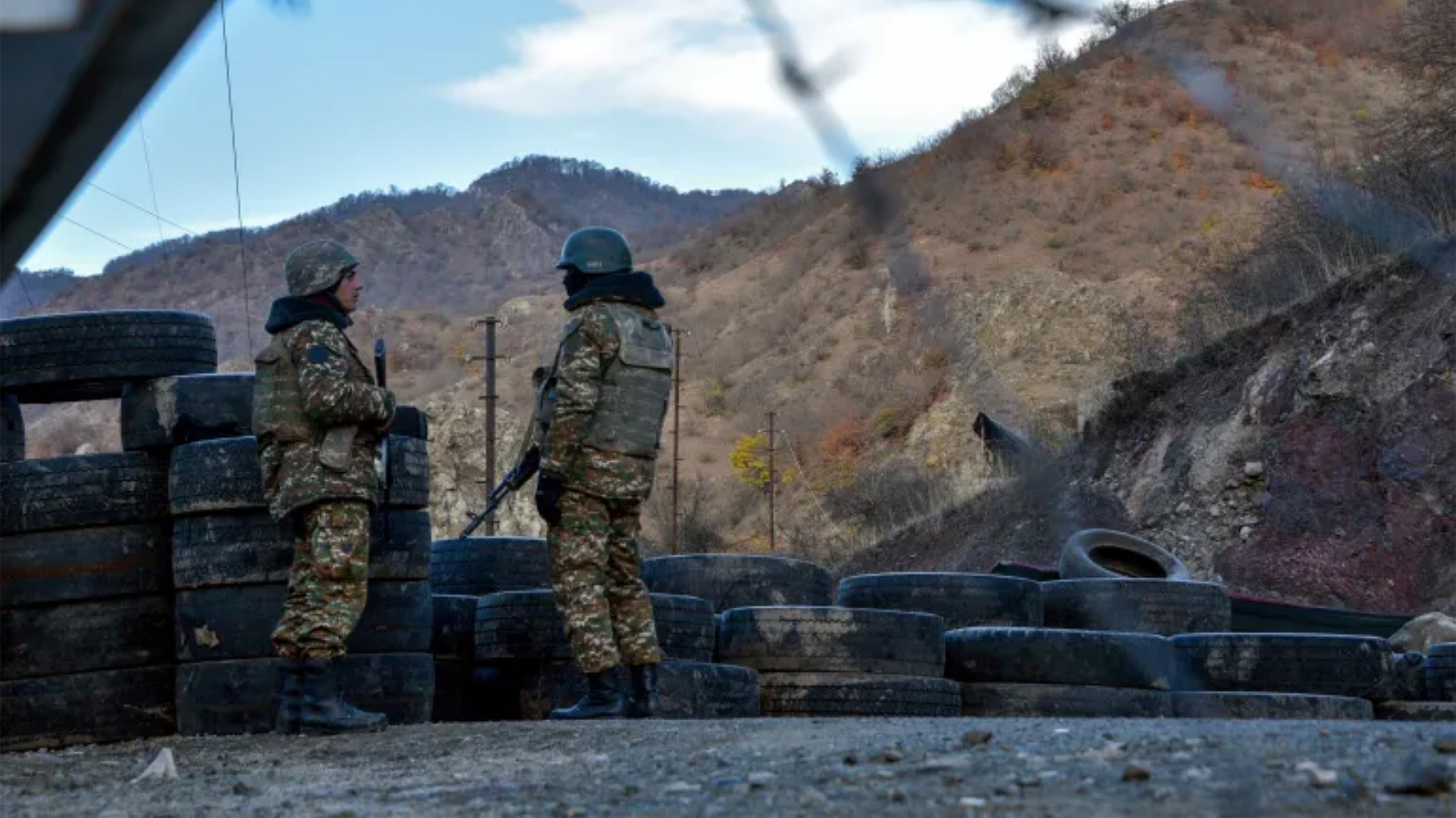
Some three years after they last signed a ceasefire agreement, Azerbaijan and Armenia seem to be on the brink of war again. At issue are disputes over the status of the Armenian-majority Nagorno-Karabakh region of Azerbaijan and the Lachin corridor, which connects the enclave to Armenia, as well as the Zangezur corridor, which provides passage between Azerbaijan and its Nakhchivan province, located west of Armenia.
Complicating the issue further is that several regional and international powers—Russia, Turkey, Iran, the European Union and the United States—have a stake in the conflict and their own assessments of what war or peace would mean for their interests.
The border disputes between Azerbaijan and Armenia first escalated into armed conflict with the dissolution of the Soviet Union in the early 1990s, when Azerbaijan faced an armed insurgency in Nagorno-Karabakh backed by Yerevan. Armenia, with Russian support, emerged from the war in control of Nagorno-Karabakh, as well as a broad swathe of Azeri-majority territory around it, and the line of communication between Azerbaijan and the Nakhchivan exclave was severed.
In the fall of 2020, Azerbaijani armed forces moved in to liberate the territories occupied by Armenia, ultimately prevailing and retaking the territories. The ceasefire agreement that ended that round of fighting provides for the opening of crossings connecting Armenia to Nagorno-Karabakh and Azerbaijan to Nakhchivan.
Yerevan says that Azerbaijan has closed the Lachin corridor for several months, causing a severe shortage of food and medicine in Nagorno-Karabakh. Baku maintains that Azerbaijani forces have simply set up checkpoints to prevent the smuggling of weapons to separatist militants. The Armenians of Nagorno-Karabakh do not recognise Azerbaijan’s sovereignty over the region, but no country in the world recognises Nagorno-Karabakh’s independence. For its part, Azerbaijan wants to build a railway through the Zangezur corridor to connect it with Nakchivan. Seeing this as a threat to its sovereignty, Armenia has refused, saying that it is prepared to open land passages through Armenian territory.
The Zangezur corridor is also a point of interest for the two countries’ neighbours. Iran views it as a threat—a Turkish-Azerbaijani endeavour to cut it off not only from its ally, Armenia, but also from economically vital areas of the world—and has expressed a willingness to intervene militarily to prevent Azerbaijan from forcibly opening it. Russian media reported that Turkey promised to respond militarily to any such Iranian intervention. Turkey is strongly invested in the opening of the corridor, which would link it with the Turkic republics across Central Asia and could constitute an important route for East-West trade and energy transmission.
Russia, meanwhile, is the elephant in the room. In the wake of the Ukrainian war, Armenia and Azerbaijan have assumed greater geopolitical importance. While traditionally a close ally of Yerevan, Moscow has adopted a more even-handed approach to Baku. This does not sit well with Yerevan, which has shown a clear desire to establish warmer relations with Western powers, particularly the United States and France. In September, the government announced joint exercises between Armenian and US forces—an unprecedent development that brought an immediate diplomatic rebuke from Moscow.
There is nothing to suggest that either Azerbaijan or Armenia is eager to reignite the war, but war may erupt nevertheless due to miscalculations by one side or the other.
On one hand, Yerevan has expressed a willingness to seek a negotiated solution and has made overtures to Ankara as well. On the other, the current Armenian leadership seems intent on escalating the conflict, continuing to supply separatists in Nagorno-Karabakh with arms and refusing to open the Zangezur corridor.
Azerbaijan, for its part, could lose patience and faith in a negotiated settlement. Baku urgently wants to resolve the status of Nagorno-Karabakh, preserve its sovereignty over its territory, and establish a stable passage to Nakhchivan. Without tangible progress toward a resolution, the hawks in Baku seeking a return to arms may prevail.
Iran might see no solution to the threat posed by Azerbaijan other than the use of force, and if Iran intervenes directly militarily, it is difficult to imagine Turkey staying on the side-lines. The South Caucasus could then become an arena for Turkish-Iranian attrition.
Other powers could make a misstep as well. Russia might find no way to rid itself of the current Armenian leadership except by encouraging Azerbaijan to inflict a new defeat on the country. On the other hand, the United States may calculate that renewed conflict in the South Caucasus would place additional pressure on Russia, thereby weakening its position in Ukraine.
Whatever the factors aggravating the situation in the South Caucasus, another war will exhaust both Armenians and Azerbaijanis.
*This is a summary of a policy brief originally written in Arabic available here.